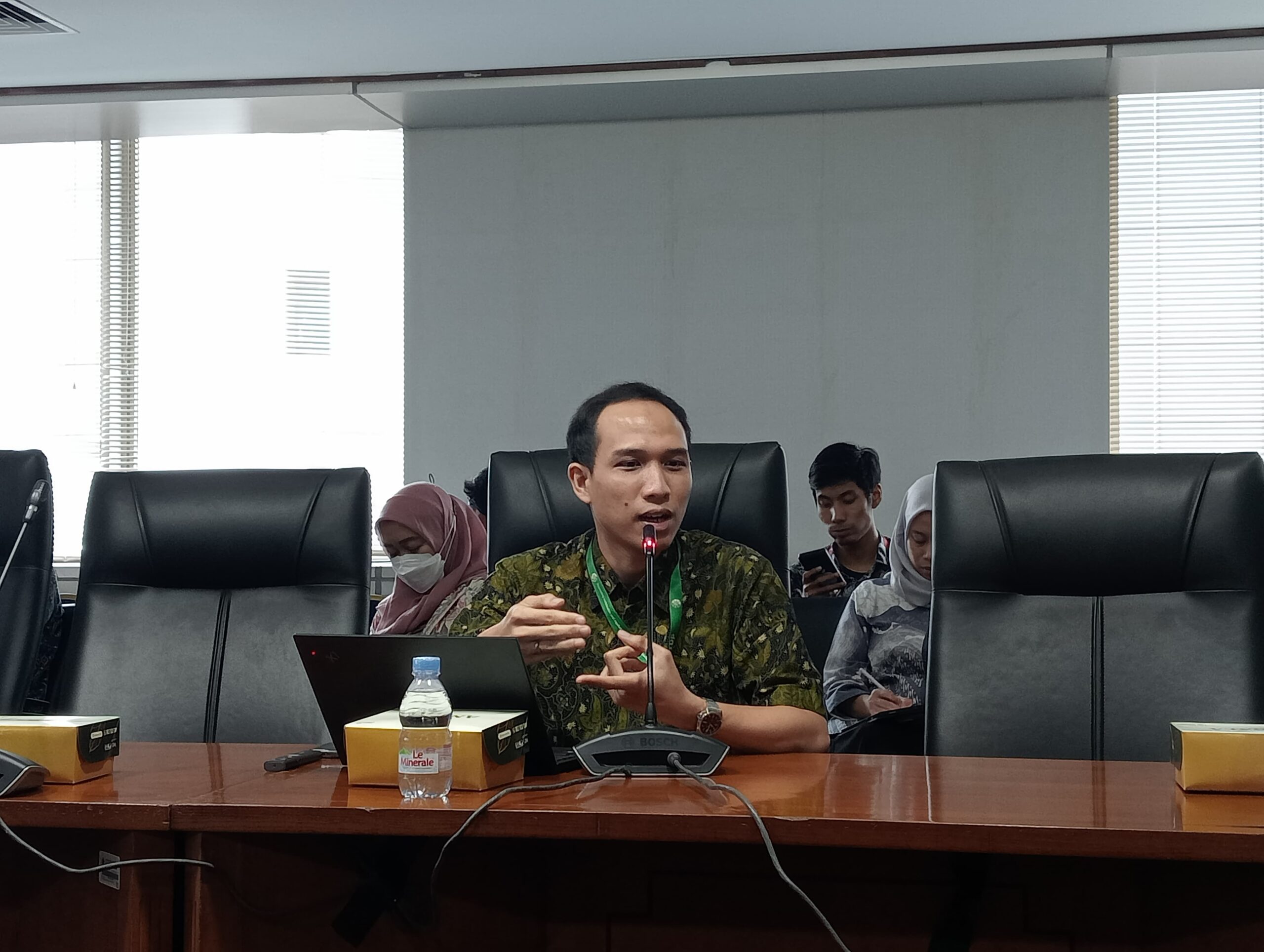November 05, 2024
ITDP Indonesia Highlights the Role of Public Transport in Reducing Emissions at the Concepts and Strategies for Sustainable Transportation Development through Green Financing and Investment Focus Group Discussion

On October 24, 2024, the Economic and Finance Bureau of the DKI Jakarta Provincial Government held a Focus Group Discussion (FGD) on “Concepts and Strategies for Sustainable Transportation Development through Green Financing and Investment” to support the development of green investment policies in the public transportation sector. Mizandaru Wicaksono, Senior Transport Associate ITDP Indonesia, attended the event, where he spoke on the role of public transportation in reducing emissions in Jakarta and the challenges of implementing green policies.
During his presentation, Mizan highlighted the significant impact of transitioning from private vehicles to public transport, noting that this shift could lead to a reduction in PM2.5 pollution by as much as 76%. To facilitate this transition, he recommended increasing the Public Service Obligation (PSO) budget by approximately 25 trillion rupiah and implementing more robust push & pull strategies, including Electronic Road Pricing (ERP), Low Emission Zones (LEZ), and higher parking fees.
Mizan also underscored the importance of improving the quality of Transjakarta’s infrastructure, which has the widest coverage area in Jakarta, to reduce emissions and encourage a move towards public transport.
Among the proposed measures to enhance infrastructure and the efficiency of PSO usage, Mizan stressed the importance of constructing dedicated corridors and prioritizing public transport at intersections to boost service efficiency. He additionally recommended developing routes with feeder transport and increasing the capacity of tap machines to expedite the tap-in and tap-out processes for passengers. The application of BRT Standards was also suggested to evaluate the establishment of world-class BRT infrastructure in Jakarta.
While the push policy to limit private vehicle usage is not widely embraced, it is a necessary measure to encourage the public to switch to public transport. Therefore, to ensure this policy can be effectively implemented and support Jakarta in reducing emissions and building a sustainable transportation system, the availability of adequate public transport, especially during peak hours, is crucial.
